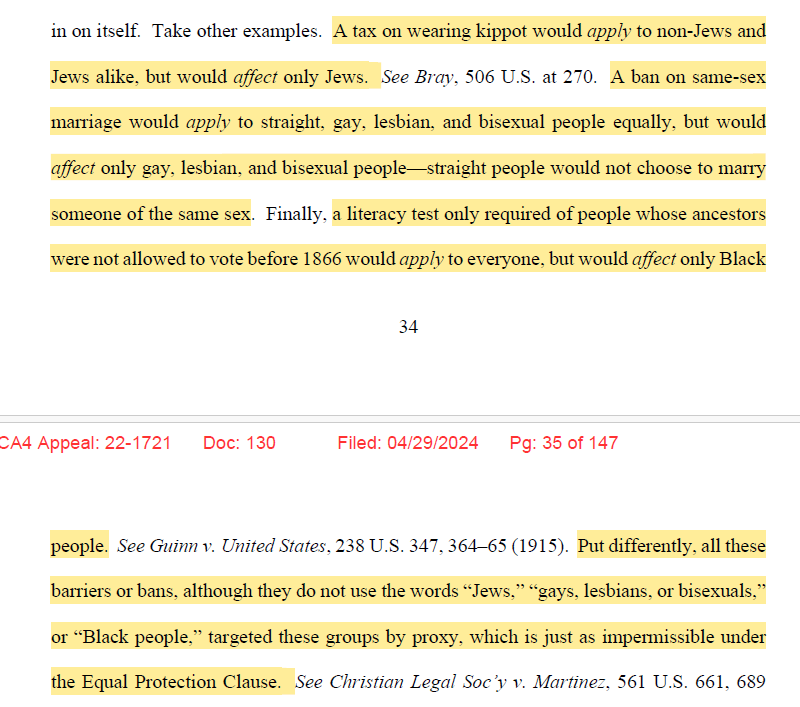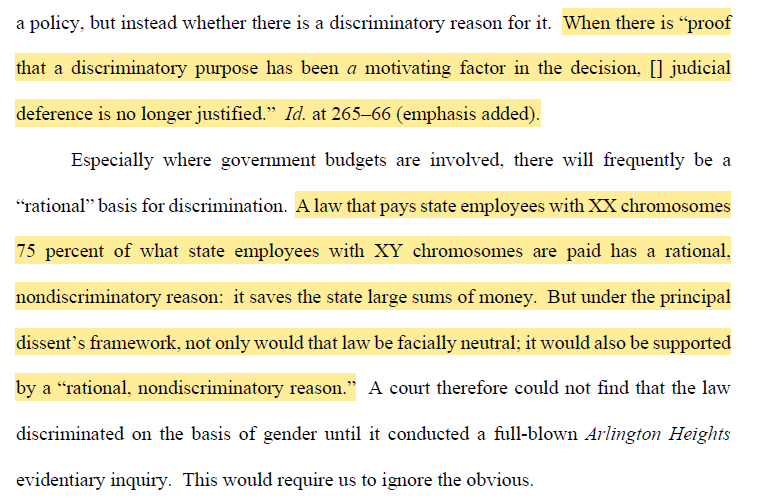National
Congress nears key votes on ‘Don’t Ask’ repeal
Levin seeks to overturn law as part of Defense budget process

Former U.S. Air Force Staff Sgt. David Hall was among an estimated 350 people who visited Capitol Hill this week to lobby for the repeal of 'Don't Ask, Don't Tell.' (Washington Blade photo by Michael Key)
As crucial votes loom on “Don’t Ask, Don’t Tell” in the House and Senate, supporters of repeal are stepping up pressure on lawmakers to act this year.
During the week of May 24, the Senate Armed Services Committee is set to consider major defense budget legislation. Opponents of “Don’t Ask, Don’t Tell” are expecting Chairman Carl Levin (D-Mich.) and Sen. Joseph Lieberman (I-Conn.) to introduce a measure to overturn the law as part of the consideration of the defense authorization bill.
At around the same time, the House version of the defense authorization bill is expected to come to the floor. Those favoring repeal of “Don’t Ask, Don’t Tell” are anticipating that Rep. Patrick Murphy (D-Pa.) will offer an amendment that would end the law.
Whether sufficient votes exist in the Senate committee or on the House floor for repeal is unclear. On April 30, Defense Secretary Robert Gates issued a letter advising Congress to hold off on any repeal vote. Most observers said the letter would have a chilling effect on repeal efforts.
Rep. Barney Frank (D-Mass.) said he’s “not very” confident that there will be enough votes for passage because he doesn’t believe those seeking to end “Don’t Ask, Don’t Tell” are sufficiently lobbying lawmakers.
“If I felt that the community was lobbying the way it should be, I’d feel better, but everybody wants to be the armchair quarterback and not do the more boring work of calling up their representative,” Frank said. “I’m optimistic in general, but the key question is will people make the calls or not?”
To step up the pressure on Congress, a group of about 350 citizen lobbyists swarmed Capitol Hill on Tuesday to encourage lawmakers to repeal “Don’t Ask, Don’t Tell” as part of a veterans lobby day sponsored by the Human Rights Campaign and Servicemembers United.
The event, which was the most highly attended lobby day in HRC’s history and the largest lobby event on “Don’t Ask, Don’t Tell,” followed a White House visit Monday in which LGBT veterans urged administration officials to move on “Don’t Ask, Don’t Tell” repeal legislation.
Alex Nicholson, executive director of Servicemembers United, said the lobby day events were “enormously successful” in part because of the sheer numbers.
Nicholson estimated that about 90 percent of those who participated in the event were veterans, a fact he said had an impact on lawmakers sensitive to the concerns of those who have served in the military.
“They were people who actually had credibility talking on the issue and people who could actually engage military legislative assistants eye-to-eye and issue-to-issue,” he said.
As a result of the lobby day and other efforts, Nicholson said he saw potential for Sens. Bill Nelson (D-Fla.) and Scott Brown (R-Mass.) to move toward supporting repeal after previously being on the fence.
Still, the outcome of the votes in the House and Senate remained unclear. Most repeal supporters said they were more likely to find success in the House than the Senate.
Aubrey Sarvis, executive director of the Servicemembers Legal Defense Network, said he agreed with an assessment given to him by Murphy in the House that sufficient support exists for passage of “Don’t Ask, Don’t Tell” on the floor.
Still, Sarvis said “we’re a couple votes short” of repeal succeeding in the Senate Armed Services Committee, although he noted that it’s still possible to win more support in the time remaining before the committee markup.
Sarvis said a key to winning more support would be finding “a legislative compromise” that addresses the concerns Gates raised about holding off on repeal until the Pentagon completes its study on the issue.
LGBT lobbyists have been pushing for delayed implementation legislation — a bill that Congress would pass now and would take effect in 2011.
On Monday, Levin said he wanted to pursue repeal as part of the defense authorization process — if the votes are present — and that he favors the idea of passing legislation that wouldn’t take effect until later, according to Roll Call.
“What we ought to do is repeal it, but make the effective date after the report,” Levin was quoted as saying.
Additionally, Sarvis said President Obama needs to follow through on his campaign promise to repeal “Don’t Ask, Don’t Tell” and convince senators to move forward on the issue.
“The person that we need to hear from the most in these closing days is the president of the United States,” Sarvis said. “The president is in the best position to reconcile the concerns that Secretary Gates expressed with the desire of Chairman Levin and others in the next two weeks.”
Nicholson similarly said he believes repeal would pass in the House and that in the Senate Armed Services Committee a vote on “Don’t Ask, Don’t Tell” would be close. He also supported forcing a vote among Senate Armed Services Committee members even if the votes are lacking for repeal.
“I think we’re starting to consider the idea that if you called the bluff of those who say they’re leaning ‘no,’ that they may change their mind,” Nicholson said. “We’re talking about one or two votes. Calling their bluff and doing the vote anyway and proceeding to the outcome is potentially a legitimate tactic, now, too.”
It’s possible that the House version of the defense authorization bill would contain repeal language that the Senate bill lacks, meaning a conference committee would resolve the issue. Whatever the conference committee decides would be the final legislation that makes its way to Obama’s desk.
Asked about whether repeal could succeed this year if only the House votes in favor of ending “Don’t Ask, Don’t Tell,” Frank said supporters “ought to focus on trying to lobby members.”
“It bothers me that you and your readers and others are worrying about what they can’t affect in lieu of doing things that they can affect by calling members and lobbying,” he said.
Sarvis said “there’s no way of knowing” whether repeal is still possible through the conference committee if the House acts on “Don’t Ask, Don’t Tell” and the Senate is unable to pass repeal.
“If the House votes for full repeal and the Senate doesn’t, yes, the issue is alive and will be within the scope of the conference, but it will be far, far more difficult to keep in there,” Sarvis said.
Sarvis said “it’s urgent” that both the House and Senate act to repeal “Don’t Ask, Don’t Tell” as part of the defense authorization bills because that would provide repeal supporters the best conditions heading into conference committee.
Nicholson said “it’s not as likely” for repeal to succeed if one chamber of Congress votes in favor of it and another chamber doesn’t, but said such a situation would nonetheless provide a path to overturning “Don’t Ask, Don’t Tell.”
“People may be disappointed and pessimistic if it comes down to the conference committee and fighting it out there,” he said. “But Congressman Murphy and Sen. Levin are 100 percent committed to seeing action on repeal this year, and are going to fight for it even if it comes down to conference committee.”
National
United Methodist Church removes 40-year ban on gay clergy
Delegates also voted for other LGBTQ-inclusive measures

The United Methodist Church on Wednesday removed a ban on gay clergy that was in place for more than 40 years, voting to also allow LGBTQ weddings and end prohibitions on the use of United Methodist funds to “promote acceptance of homosexuality.”
Overturning the policy forbidding the church from ordaining “self-avowed practicing homosexuals” effectively formalized a practice that had caused an estimated quarter of U.S. congregations to leave the church.
The New York Times notes additional votes “affirming L.G.B.T.Q. inclusion in the church are expected before the meeting adjourns on Friday.” Wednesday’s measures were passed overwhelmingly and without debate. Delegates met in Charlotte, N.C.
According to the church’s General Council on Finance and Administration, there were 5,424,175 members in the U.S. in 2022 with an estimated global membership approaching 10 million.
The Times notes that other matters of business last week included a “regionalization” plan, which gave autonomy to different regions such that they can establish their own rules on matters including issues of sexuality — about which international factions are likelier to have more conservative views.
Federal Government
Republican state AGs challenge Biden administration’s revised Title IX policies
New rules protect LGBTQ students from discrimination

Four Republicans state attorneys general have sued the Biden-Harris administration over the U.S. Department of Education’s new Title IX policies that were finalized April 19 and carry anti-discrimination protections for LGBTQ students in public schools.
The lawsuit filed on Tuesday, which is led by the attorneys general of Kentucky and Tennessee, follows a pair of legal challenges from nine Republican states on Monday — all contesting the administration’s interpretation that sex-based discrimination under the statute also covers that which is based on the victim’s sexual orientation or gender identity.
The administration also rolled back Trump-era rules governing how schools must respond to allegations of sexual harassment and sexual assault, which were widely perceived as biased in favor of the interests of those who are accused.
“The U.S. Department of Education has no authority to let boys into girls’ locker rooms,” Tennessee Attorney General Jonathan Skrmetti said in a statement. “In the decades since its adoption, Title IX has been universally understood to protect the privacy and safety of women in private spaces like locker rooms and bathrooms.”
“Florida is suing the Biden administration over its unlawful Title IX changes,” Florida Gov. Ron DeSantis wrote on social media. “Biden is abusing his constitutional authority to push an ideological agenda that harms women and girls and conflicts with the truth.”
After announcing the finalization of the department’s new rules, Education Secretary Miguel Cardona told reporters, “These regulations make it crystal clear that everyone can access schools that are safe, welcoming and that respect their rights.”
The new rule does not provide guidance on whether schools must allow transgender students to play on sports teams corresponding with their gender identity to comply with Title IX, a question that is addressed in a separate rule proposed by the agency in April.
LGBTQ and civil rights advocacy groups praised the changes. Lambda Legal issued a statement arguing the new rule “protects LGBTQ+ students from discrimination and other abuse,” adding that it “appropriately underscores that Title IX’s civil rights protections clearly cover LGBTQ+ students, as well as survivors and pregnant and parenting students across race and gender identity.”
Federal Government
4th Circuit rules gender identity is a protected characteristic
Ruling a response to N.C., W.Va. legal challenges

BY ERIN REED | The 4th U.S. Circuit Court of Appeals ruled Monday that transgender people are a protected class and that Medicaid bans on trans care are unconstitutional.
Furthermore, the court ruled that discriminating based on a diagnosis of gender dysphoria is discrimination based on gender identity and sex. The ruling is in response to lower court challenges against state laws and policies in North Carolina and West Virginia that prevent trans people on state plans or Medicaid from obtaining coverage for gender-affirming care; those lower courts found such exclusions unconstitutional.
In issuing the final ruling, the 4th Circuit declared that trans exclusions were “obviously discriminatory” and were “in violation of the equal protection clause” of the Constitution, upholding lower court rulings that barred the discriminatory exclusions.
The 4th Circuit ruling focused on two cases in states within its jurisdiction: North Carolina and West Virginia. In North Carolina, trans state employees who rely on the State Health Plan were unable to use it to obtain gender-affirming care for gender dysphoria diagnoses.
In West Virginia, a similar exclusion applied to those on the state’s Medicaid plan for surgeries related to a diagnosis of gender dysphoria. Both exclusions were overturned by lower courts, and both states appealed to the 4th Circuit.
Attorneys for the states had argued that the policies were not discriminatory because the exclusions for gender affirming care “apply to everyone, not just transgender people.” The majority of the court, however, struck down such a claim, pointing to several other cases where such arguments break down, such as same-sex marriage bans “applying to straight, gay, lesbian, and bisexual people equally,” even though straight people would be entirely unaffected by such bans.
Other cases cited included literacy tests, a tax on wearing kippot for Jewish people, and interracial marriage in Loving v. Virginia.
See this portion of the court analysis here:

Of particular note in the majority opinion was a section on Geduldig v. Aiello that seemed laser-targeted toward an eventual U.S. Supreme Court decision on discriminatory policies targeting trans people. Geduldig v. Aiello, a 1974 ruling, determined that pregnancy discrimination is not inherently sex discrimination because it does not “classify on sex,” but rather, on pregnancy status.
Using similar arguments, the states claimed that gender affirming care exclusions did not classify or discriminate based on trans status or sex, but rather, on a diagnosis of gender dysphoria and treatments to alleviate that dysphoria.
The majority was unconvinced, ruling, “gender dysphoria is so intimately related to transgender status as to be virtually indistinguishable from it. The excluded treatments aim at addressing incongruity between sex assigned at birth and gender identity, the very heart of transgender status.” In doing so, the majority cited several cases, many from after Geduldig was decided.
Notably, Geduldig was cited in both the 6th and 11th Circuit decisions upholding gender affirming care bans in a handful of states.
The court also pointed to the potentially ridiculous conclusions that strict readings of what counts as proxy discrimination could lead to, such as if legislators attempted to use “XX chromosomes” and “XY chromosomes” to get around sex discrimination policies:
Importantly, the court also rebutted recent arguments that Bostock applies only to “limited Title VII claims involving employers who fired” LGBTQ employees, and not to Title IX, which the Affordable Care Act’s anti-discrimination mandate references. The majority stated that this is not the case, and that there is “nothing in Bostock to suggest the holding was that narrow.”
Ultimately, the court ruled that the exclusions on trans care violate the Equal Protection Clause of the Constitution. The court also ruled that the West Virginia Medicaid Program violates the Medicaid Act and the anti-discrimination provisions of the Affordable Care Act.
Additionally, the court upheld the dismissal of anti-trans expert testimony for lacking relevant expertise. West Virginia and North Carolina must end trans care exclusions in line with earlier district court decisions.
The decision will likely have nationwide impacts on court cases in other districts. The case had become a major battleground for trans rights, with dozens of states filing amicus briefs in favor or against the protection of the equal process rights of trans people. Twenty-one Republican states filed an amicus brief in favor of denying trans people anti-discrimination protections in healthcare, and 17 Democratic states joined an amicus brief in support of the healthcare rights of trans individuals.
Many Republican states are defending anti-trans laws that discriminate against trans people by banning or limiting gender-affirming care. These laws could come under threat if the legal rationale used in this decision is adopted by other circuits. In the 4th Circuit’s jurisdiction, West Virginia and North Carolina already have gender-affirming care bans for trans youth in place, and South Carolina may consider a similar bill this week.
The decision could potentially be used as precedent to challenge all of those laws in the near future and to deter South Carolina’s bill from passing into law.
The decision is the latest in a web of legal battles concerning trans people. Earlier this month, the 4th Circuit also reversed a sports ban in West Virginia, ruling that Title IX protects trans student athletes. However, the Supreme Court recently narrowed a victory for trans healthcare from the 9th U.S. Circuit Court of Appeals and allowed Idaho to continue enforcing its ban on gender-affirming care for everyone except the two plaintiffs in the case.
Importantly, that decision was not about the constitutionality of gender-affirming care, but the limits of temporary injunctions in the early stages of a constitutional challenge to discriminatory state laws. It is likely that the Supreme Court will ultimately hear cases on this topic in the near future.
Celebrating the victory, Lambda Legal Counsel and Health Care Strategist Omar Gonzalez-Pagan said in a posted statement, “The court’s decision sends a clear message that gender-affirming care is critical medical care for transgender people and that denying it is harmful and unlawful … We hope this decision makes it clear to policy makers across the country that health care decisions belong to patients, their families, and their doctors, not to politicians.”
****************************************************************************

Erin Reed is a transgender woman (she/her pronouns) and researcher who tracks anti-LGBTQ+ legislation around the world and helps people become better advocates for their queer family, friends, colleagues, and community. Reed also is a social media consultant and public speaker.
******************************************************************************************
The preceding article was first published at Erin In The Morning and is republished with permission.



















